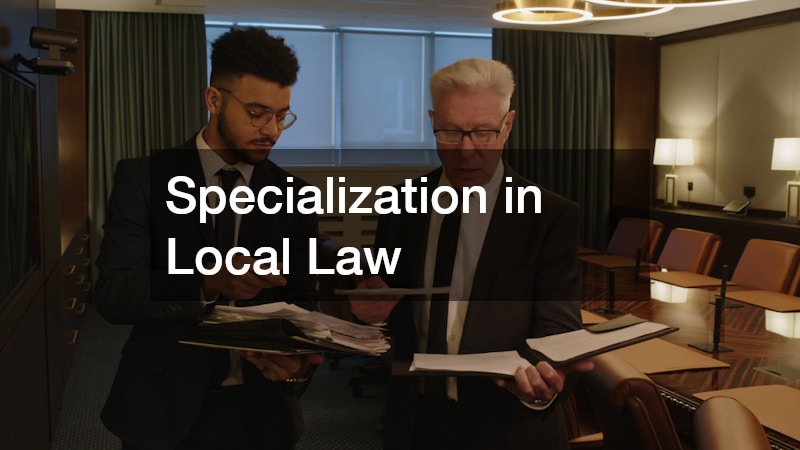Top Tips for Hiring a Local Criminal Lawyer You Can Trust

Hiring a local criminal lawyer is a critical decision that can significantly impact the outcome of your legal situation. With so many legal practitioners available, it’s important to find one you can trust. This article aims to provide you with top tips on finding the right local criminal defense attorney.
The educational background of a criminal lawyer serves as the foundation for their legal practice. Typically, a qualified criminal lawyer will have completed an undergraduate degree followed by a Juris Doctor (JD) degree from an accredited law school. Furthermore, they must have passed the bar examination in the state where they intend to practice, demonstrating their competence in law.
Experience in Criminal Law
Experience is a key factor in determining a criminal lawyer’s ability to handle your case effectively. Lawyers who have practiced specifically in the field of criminal law are typically more adept at understanding the nuances of criminal cases. Their familiarity with different types of offenses, from misdemeanors to felonies, equips them with the skills needed for formulating a defense strategy tailored to your circumstances.
An experienced criminal lawyer will likely have represented clients in various stages of the judicial process, from pre-trial hearings to appeals. Having navigated through multiple cases, they can anticipate challenges and mitigate potential risks. This experience not only enhances legal acumen but also boosts confidence in managing courtroom dynamics and negotiation processes.
Specialization in Local Law
The legal landscape can vary greatly from one jurisdiction to another, making it crucial to hire a lawyer knowledgeable in local laws and court systems. A lawyer who specializes in local criminal statutes can provide refined insight into defense strategies that align with regional legal nuances. This specialization ensures they are well-versed with local judges, prosecutors, and court procedures, which can significantly influence the outcome of your case.
Familiarity with local courts allows a criminal lawyer to navigate jurisdiction-specific regulations effectively. With this knowledge, they can anticipate procedural requirements or preferences unique to a specific county or city. Such strategic preparation can streamline processes, reduce the risk of delays, and result in more favorable case resolutions.
Client Reviews and Testimonials
Online client reviews and testimonials offer valuable insights into a criminal lawyer’s past performance and client satisfaction. Consistently positive reviews can indicate a lawyer’s competence and ability to achieve successful case outcomes. Conversely, patterns of negative feedback might serve as a red flag when evaluating potential candidates for your legal defense.
Case Outcomes and Success Rate
Analyzing a lawyer’s past case outcomes is crucial for assessing their track record. A high success rate in cases mirroring your own can be a strong indicator of their ability to navigate similar legal challenges effectively. Looking at both the quantity and quality of past cases can help ensure that you’re choosing a lawyer capable of securing favorable results.
Professional Reputation
A lawyer’s professional reputation often reflects their standing within the legal community and their peers’ acknowledgment of their skills and ethics. Peer reviews and industry recognitions are crucial in assessing the respect a lawyer commands from fellow practitioners. Building a network of legal professionals who recognize and commend their practice can be indicative of a trustworthy lawyer.
Legal Strategy and Approach
The initial consultation presents an opportunity to understand your prospective lawyer’s strategic vision for your case. Inquiring about their proposed approach can reveal their problem-solving skills and adaptability to your unique legal needs. Discussing potential strategies also allows you to evaluate if the lawyer’s methodology aligns with your expectations and desired outcomes.
Ask the lawyer to explain their rationale behind the proposed approach, including any anticipated risks and how they plan to address them. A comprehensive understanding of their strategy can provide reassurance about their preparedness and potential to handle unforeseen challenges. Additionally, transparency about their approach can foster trust and ensure cohesive teamwork throughout your case.
Communication and Availability
The effectiveness of your communication with a lawyer is crucial for building a successful and trustworthy attorney-client relationship. During your initial consultation, evaluate the lawyer’s communication style and responsiveness to determine whether they meet your expectations. Clear, prompt communication ensures that you are informed about the developments in your case and that your concerns are promptly addressed.
Ask the lawyer how they plan to keep you updated and how regularly you can expect to receive case progress reports. Moreover, discussing their availability and preferred methods of communication, such as email, phone calls, or in-person meetings, can help establish efficient communication channels. Ensuring your lawyer is accessible when needed is vital for a collaborative defense effort.
Considering factors such as relevant experience, familiarity with local laws, client testimonials, and communication skills helps build a comprehensive profile of potential lawyers. Additionally, discussing financial aspects and aligning expectations through sincere dialogue promotes transparency and mutual trust. A methodical, informed approach reinforces your confidence in entrusting your legal needs to the right professional.
Ultimately, choosing the right criminal lawyer requires due diligence and careful consideration of various critical factors. The endeavor to find a reliable local lawyer is an investment in your future and peace of mind. With informed choices and strategic collaboration, you can pave the way for a robust defense and a favorable outcome in your legal proceedings.



